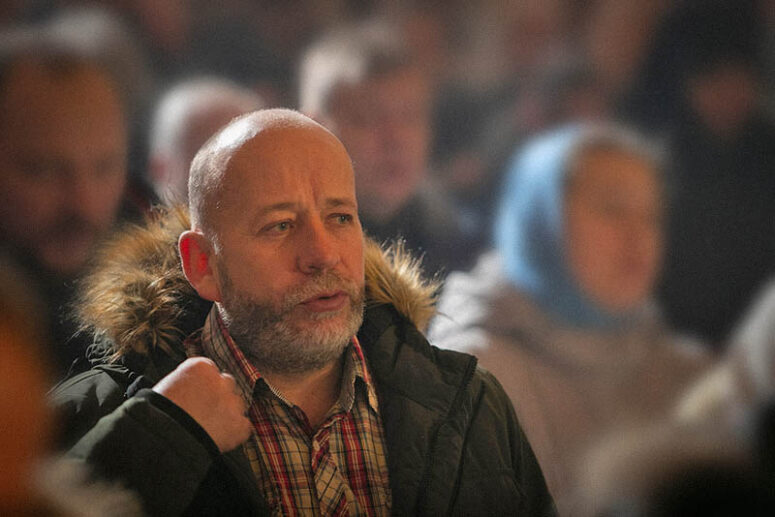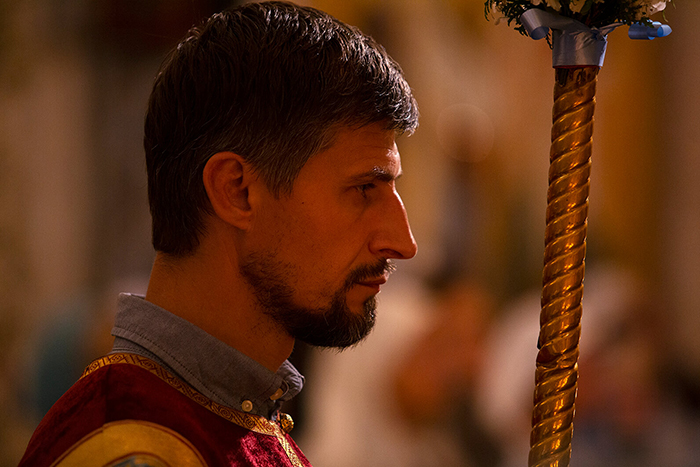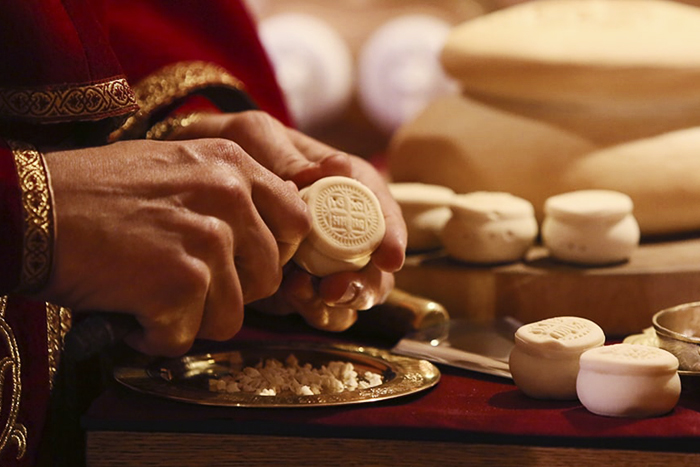
Question: If a believer finds that prayer in his own words allows him to achieve greater humility and repentance than a prayer from the rule, should not he pray in his own words more, and read from the rule less?
In a letter to an archimandrite, St. Theophan the Recluse wrote: “Whichever rule one chooses, any one of them will be good, as long as it keeps one’s soul in reverence toward God.” He also said: “One should continue to read prayers and psalms to fire up one’s soul, and then pray by oneself, sharing one’s needs with the Lord, or not doing any of that.”
The question refers to one’s daily prayer, but also the prayer rule before the Divine Liturgy.
Archpriest Konstantin Ostrovsky:
Many holy fathers who practised and taught inner prayer throughout their lives, also read the prayer rules. They prayed from the prayer book and other liturgical texts. Others, like St. Theophan the Recluse, recommended to the faithful that they progress from reading from the prayer book to saying short prayers like the Lord’s Prayer. But this wise recommendation should not be taken as an excuse to neglect the prayer texts from the prayer book or to dismiss them as if they had been written for second-class Christians.
In truth, prayers from the prayer book represent a high level of spiritual achievement, which we are still a long way from reaching, as these texts come from the hearts of some great saints. That they wrote their texts on paper was a gift from God, so we can all learn how to pray with contrite hearts as the holy fathers did.
If we pray in our own words, we need not worry about the beauty of the wording: the simpler the better.
When a child is dangerously ill, her mother does not waste her time composing a prayer text. She just asks God: “Lord, help me, save my child!” Prayers are not made up – they are given by the Holy Spirit.
Because the text of a prayer is a piece of writing, it may receive an aesthetic response from the reader or listener. They may like some prayers more than others. Prayers are also chanted during services at church, and so the latter observation will also be true for the music of the hymns. For example, Wedel’s “Penance” impresses me immensely with its deep text and captivating music.
But most of all, prayer is an appeal of a perishing sinner to the Almighty Saviour and All-knowing judge, as shown in this graphic parable below.
A man comes home intoxicated and accidentally sets fire to his flat. He is fast asleep and does not wake up until his whole dwelling is on fire, and he can no longer exit through the door. He opens the window. Now, does he take any time to compose his speech to the firefighters, or to remember the language for polite requests or warm salutations? He has just come around and does not do any of this. He simply cries, “Help!”
If someone is busy picking the prayer texts that please us the most, maybe they have not yet realised the desperateness of their situation.
Here is another illustration, a parable from Leo Tolstoy’s story “Three Elders.” Three elders lived on an island, and they prayed like this: “Three of you, three of us, Lord have mercy on us.” God sent them a bishop. He taught them the Prayer “Lord Our Father” and left. As he was sailing back in his boat, he heard some splashes. He turned around and saw the three elders running after his boat on the water. They were pleading: “Father, we forgot the words. Can you teach us again?” The bishop replied, “The Lord hears your prayer, too. You are good at it, I cannot teach you any better. Keep praying for us sinners, elders of God!”
As these examples show, our inner state matters to our Lord more than the outer form of our prayer. Imagine that the bishop in Tolstoy’s parable returned to his diocese and taught his flock to pray “Three of you” instead of “Lord our Father.” He would not, as that would be absurd. Simple and naive words can express profound and sincere faith, and that is beautiful. But that does not mean we should all pray in these same words. It seems wise to keep the texts selected by the Church and included in the liturgical books and use them in our communal prayers.
Archpriest Valerian Krechetov:
Praying in my own words? I am afraid I have not grown to that stage yet. I have been praying according to tradition, but I do not feel ready to use my own words.
As Father Sergey Mechev said, “First pay off your debts, and only then offer your gifts. I have yet to pay off my debts, I have not grown far enough to start bringing gifts.
Our prayers were written by saints. The holy fathers say that the saints are praying along with us as we read their prayers.
I am hopeful that these prayers will bring the Lord’s mercy on me. With my own prayers, I cannot be so sure.
I still have not reached the level where I can pray in my own words. I still need to absorb the written prayers.
Archpriest Vladimir Vorobiev:
How do we learn to pray? Learning how to play the piano might be a useful analogy. When we begin, they do not tell us immediately to write music and play it. Instead, we practise playing the pieces that were selected and arranged for us in order of difficulty. The more we play, the better we master the techniques, and the more fluent we become. But even when we have acquired a fair amount of skill, we are not always ready to compose or improvise, so we continue to play classics – Bach, Beethoven, Schubert, Chopin and Rachmaninoff. We keep doing it because these pieces set the mark, they are examples of good music, and we learn from them. If we stop playing classics, we backtrack, forget many things, and lose track of our progress.
It is the same way with prayer. We need to pray in our own words from time to time, to avoid formalism and mindless recitation. We need to learn to put our hearts in our prayers and share with God the things that matter to us now. But if we stop reading from the rule, we will disconnect ourselves from the school of prayer. By saying the prayers of the Holy Fathers – Basil the Great, John Chrysostom – and many others – we learn the art of prayer. If we turn away from this school, our prayer in our own words will degenerate into something weak. Rather than praying, we will babble, and lose the skill of prayer.
So I think that prayer in our own words is essential, but we should combine it with reading the prayers of the great saints. We should pay attention to both.
Translated by The Catalogue of Good Deeds
Source: https://pravlife.org/ru/content/molitva-svoimi-slovami





Yes, pay attention to both.